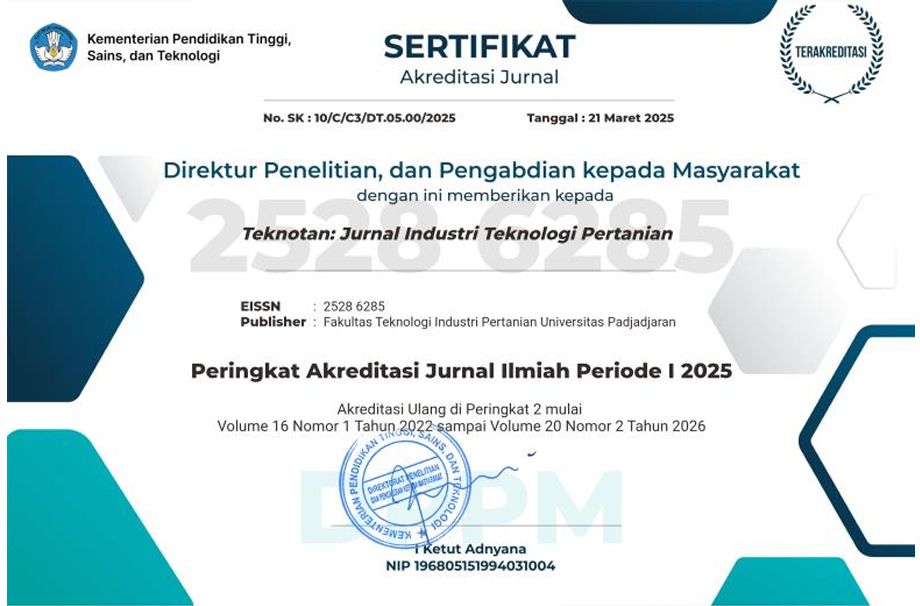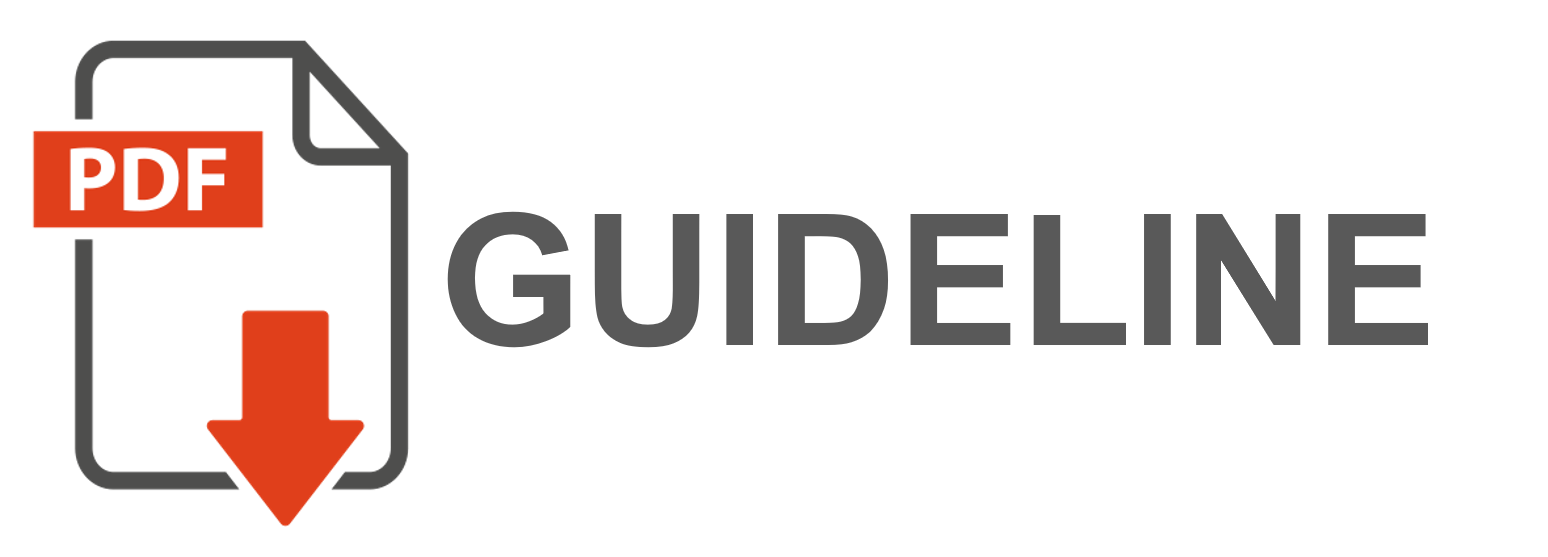A SWOT Analysis of the Hydroponics Entrepreneurship as Sustainable Income in Covid-19 Pandemic Adaptation
Abstract
The COVID-19 pandemic made us adapt to changes. One kind of adaptation that provides opportunities is hydroponics entrepreneurship as sustainable income generation. The sustainability context in this research is about how impactful hydroponics is with regard to economic, social and environmental aspects. This study aims to give a comprehensive understanding of the potential of hydroponics entrepreneurship, located in urban areas of Indonesia, as sustainable income generation. The research is a qualitative study that was conducted in Jakarta, Bogor, Depok, Tangerang and Bekasi. The data collection was conducted through literature review and in-depth interviews with 25 respondents. The literature review aims to give an understanding of the sustainability context while the interview focused on the Strength-Weakness-Opportunity-Threat (SWOT) analysis of hydroponics entrepreneurship activity. The findings of the interview show that the quality of hydroponics products and customer responsiveness in the two study areas may become the strengths of hydroponics. Meanwhile, the efficiency of production and innovation turn out as the weaknesses of the activities. Furthermore, the hydroponics grower can find opportunities in political, social, technological, and legal aspects, but they should be aware of the economic and environmental threats. In conclusion, hydroponics is a promising sector for income generation in the two study areas but considering both helpful aspects such as quality, customer responsive, technology, political environment, social condition, and legalization and harmful factors such as efficiency, innovation, economic condition, and environment are essential for the hydroponics growers.
Keywords
Full Text:
PDFReferences
Andini Ayu. (2020). Tren Memboyong Taman, Ke Balkon Rumah. Accessed In January 2021. Retrieved From: Https://Lokadata.Id/Artikel/Tren-Memboyong-Taman-Ke-Balkon-Rumah
Baker Derek, Nur Fajrina, RR. Rukmowatibrotodjojo. (2021). Impact Of COVID-19 On Vegetable Demand In Indonesia (The Local-Level Impacts Of COVID-19 On Vegetable Consumption At Selected Locations In Indonesia). Purwakarta: EWINDO research-internal usage
Chandra, A. J., & Diehl, J. A. (2019). Urban Agriculture, Food Security, And Development Policies in Jakarta: A Case Study of Farming Communities at Kalideres–Cengkareng District, West Jakarta. Land Use Policy, 89, 104211.
Danang. (2017). Empat Hal Penting Dalam Mengelola Hidroponik. Rectrived on: Https://Www.Its.Ac.Id/News/2017/02/24/Empat-Hal-Penting-Dalam-Mengelola-Hidroponik/
Fozer, D., Sziraky, F. Z., Racz, L., Nagy, T., Tarjani, A. J., Toth, A. J., ... & Mizsey, P.(2017). Life Cycle, PESTLE, And Multi-Criteria Decision Analysis of CCS Process Alternatives. Journal of Cleaner Production, 147, 75-
Harisdani, D. D., Hadinugroho, D. L., & Sitorus, R. (2018). Hydroponics Training As An Alternative Urban Farming. Abdimas Talenta: Jurnal Pengabdian Kepada Masyarakat, 3(2), 134-140.
Hanna, R., And Olken, B. (2020) Survey Online Terkait Dampak Ekonomi Dari COVID-19 Di Indonesia: Hasil Survei Minggu Ke-2. J-PAL Southeast Asia. Accessed On 25th Of July 2020. Https://Drive.Google.Com/Drive/U/0/Folders/1duc1dz_C1_Cfjslerpk5nnhnck_9qy1 85.
ILO (International Labour Organization). (2020). ILO Monitor: Covid-19 And the World Of Work. Accessed On June 30th 2020. Https://Www.Ilo.Org/Wcmsp5/Groups/Public/---Dgreports/---Dcomm/Documents/Briefingnote/Wcms_743146.Pdf
Inews.com. (2020). Sri Mulyani Sebut 32 Persen Rumah Tangga Kekurangan Pangan Akibat COVID-19. Retrieved From: Https://Www.Inews.Id/Finance/Makro/Sri-Mulyani-Sebut-32-Persen-Rumah-Tangga-Kekurangan-Pangan-Akibat-COVID-19. Accessed On December 21, 2020
Indrawati, E. (2018). Urban Farming Model in South Jakarta. In IOP Conference Series: Earth and Environmental science (Vol. 106, No. 1, P. 012052). IOP Publishing.
Ichniarsyah, A. N., Agustin, H., & Maulidian, M.2019. Pelatihan Hidroponik Di Yayasan Asofa Akselerasi Sodaqoh Fiqrul Akbar, Kab. Bekasi. Jurdimas Royal, 2(2), 101-106.
Irawan, E. P. (2019). The Impact Analysis of Campaign Program of The Green Environmental Movement Through Hydroponics in Community. International Journal of Scientific and Research Publications (IJSRP), 9(4), P8856.
Kharisma V and Abe N. (2020). Food Insecurity and Associated Socioeconomic Factors: Application of Rasch and Binary Logistic Models with Household Survey Data in Three Megacities In Indonesia. Soc. Indic. Res., 148(2): 655–679.
Lukić, R., Lalić, S., Sućeska, A., Hanić, A., & Bugarčić, M. (2018). Carbon dioxide emissions in retail food. Економика пољопривреде, 65(2), 859-874.
Naradda Gamage, S. K., Ekanayake, E. M. S., Abeyrathne, G. A. K. N. J., Prasanna, R. P. I. R., Jayasundara, J. M. S. B., & Rajapakshe, P. S. K. (2020). A review of global challenges and survival strategies of small and medium enterprises (SMEs). Economies, 8(4), 79.
Martin, M., & Molin, E. (2019). Environmental assessment of an urban vertical hydroponic farming system in Sweden. Sustainability, 11(15), 4124.
Modu, F., Adam, A., Aliyu, F., Mabu, A., & Musa, M. (2020). A survey of smart hydroponics systems. Advances in Science, Technology and Engineering Systems Journal, 5(1), 233-248.
Pulighe, G., & Lupia, F. (2020). Food First: COVID-19 Outbreak and Cities Lockdown A Booster For A Wider Vision On Urban Agriculture. Sustainability, 12(12), 5012.
Prasetya, S., Ridlwan, H. M., Muslimin, M., & Khairunnisa, R. (2020). Pengembangan Budidaya Tanaman Organik Dengan Sistem Hidroponik Otomatis Bagi Masyarakat Perkotaan (Kelurahan Munjul). Mitra Akademia: Jurnal Pengabdian Masyarakat, 3(1).
Regmi, S., & Naharki, K. (2020). A SWOT Analysis of Agribusiness Entrepreneurship in Nepal. Food & Agribusiness Management, 1(2), 60-65.
Rozaki, Z. 2020. COVID-19, Agriculture, And Food Security in Indonesia. Reviews in Agricultural Science, 8, 243-260.
Statista. (2020). Fresh Vegetables. Retrieved FromHttps://Www.Statista.com/Outlook/40160205/120/Fresh-Vegetables/Indonesia. Accessed In December 2020.
Siskayanti, R., Rusanti, W. D., & Kosim, M. E. (2020). Pemberdayaan Karang Taruna Melalui Pelatihan Hidroponik Sebagai Upaya Ketahanan Pangan Keluarga Di Masa Pandemi Dengan Pemanfaatan Pekarangan Rumah. In Prosiding Seminar Nasional Pengabdian Masyarakat LPPM UMJ (Vol. 1, No. 1).
Suharjuddin, S., Widiansyah, A., & Yohamintin, Y. (2020). Peningkatan Keterampilan Ecopreneur Pada Masa Pandemi COVID-19 Melalui Pelatihan Budidaya Tanaman Sayur Hias Organik. Jurnal Anoa, 1(3), 138-153.
Sunardi, N., & Lesmana, R. (2020). Konsep Icepower (Wiramadu) Sebagai Solusi Wirausaha Menuju Desa Sejahtra Mandiri (DMS) Pada Masa Pandemi COVID-19. JIMF (Jurnal Ilmiah Manajemen Forkamma), 4(1).
Tolga, A. C., & Basar, M. (2020). Hydroponic System Evaluation in Urban Farming Via Fuzzy EDAS And TODIM Methods. Journal of Intelligent & Fuzzy Systems, 39(5), 6325-6337. doi:10.3233/jifs-189100
Wahyuni Sari.2019. Qualitative Research Method: Theory and Practice. Jakarta: Salemba Empat.
Weber, C. F. (2017). Microgreen Farming and Nutrition: A Discovery-Based Laboratory Module to Cultivate Biological and Information Literacy In Undergraduates. The American Biology Teacher, 79(5), 375-386.
World Bank Report. (2021). Towards A Secure and Fast Recovery. Retrieved From: Https://Www.Worldbank.Org/In/Country/Indonesia/Publication/December-2020-Indonesia-Economic-Prospects. Accessed On Feb 29, 2021
DOI: https://doi.org/10.24198/jt.vol16n2.5
Refbacks
- There are currently no refbacks.
Indexed by:

This work is licensed under a Creative Commons Attribution 4.0 International License (CC BY-SA 4.0)


1.png)
.png)







